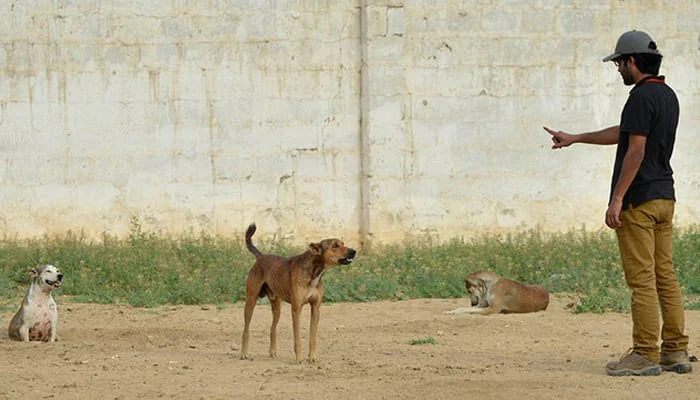Six die from rabies in Karachi between May-August
More than 22,000 cases of dog bites have been reported so far this year
August 23, 2025

KARACHI: Six people have died from rabies following dog bites in the metropolis between May and August, hospital officials said on Friday.
According to medical authorities, three of the victims were under treatment at Jinnah Hospital and three others at Korangi’s Trust Hospital.
Across Sindh, the number of rabies-related deaths this year has climbed to 14, officials said. Eight patients have died at Jinnah Hospital and six at Trust Hospital in Korangi.
Health officials further disclosed that more than 22,000 cases of dog bites have been reported so far this year, underscoring the growing public health concern.
Alarmingly, a number of dog bite victims do not report to any healthcare facility, instead following home remedies for the treatment of wounds.
Health experts say that a dog bite victim must report to a public sector healthcare facility and follow a standard protocol to avoid rabies, which is 100% fatal for both animals and humans after developing symptoms.
People must be made aware of the fact that rabies cases are more common in summer in this region of the world, including Pakistan.
Studies reveal that in extreme hot weather conditions, stray dogs get rabid more often. Also, dog bite cases register an upward trend in summer because animals, including dogs, tend to be more active during the warmer months, which increases the chances of their interactions with humans.
Rabies is one of the most neglected diseases in Pakistan, though its incidence is very high, with an estimated 2,000 to 5,000 cases every year, meaning the disease claims 2,000 to 5,000 lives every year, as it is 100% fatal after developing symptoms, reported The News.
Experts stress that people must take measures to avoid dog bites, particularly in warmer months, and should not take dog bites lightly. Studies reveal that rabies is an acute infectious zoonotic disease of the central nervous system, which can affect almost all mammals, including humans.
Rabies is transmitted to other animals and humans through close contact with the saliva of infected animals through bites, scratches, licks on broken skin, and mucous membranes.
In case of a rabid animal bite case, the virus spreads from the injured part to the nerves and on to the spinal cord, which damages the victim’s brain and ultimately results in death.
It causes convulsions, inability to move, and strange behaviour, developing hydrophobia (an extremely intense aversion to water, especially the fear of drinking water or other liquids) in the victim exposed to the disease.











